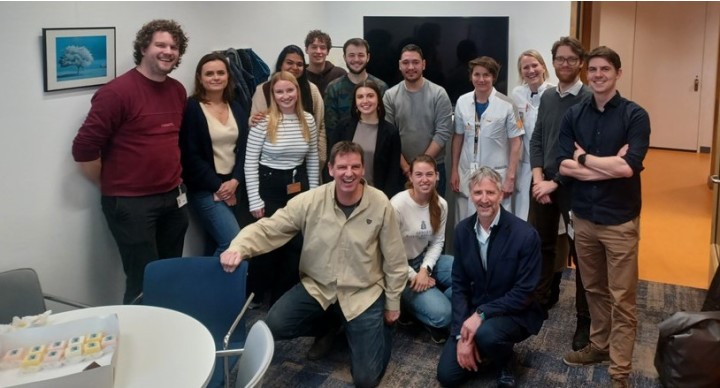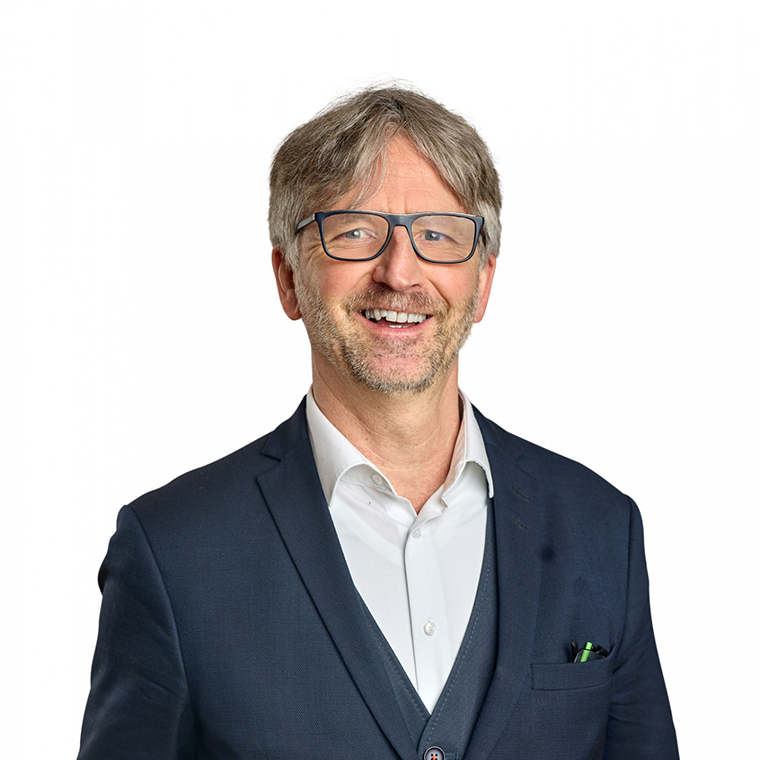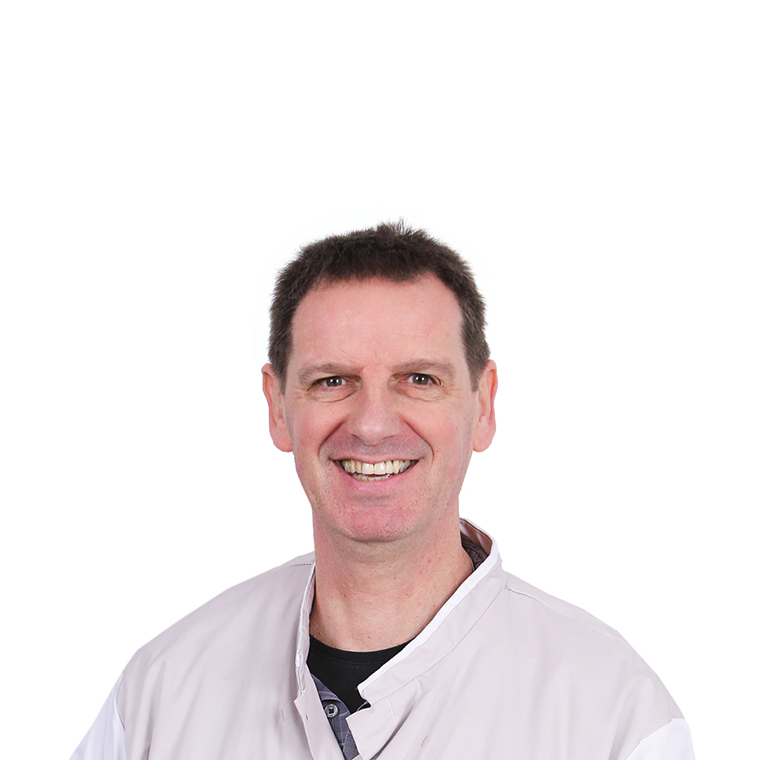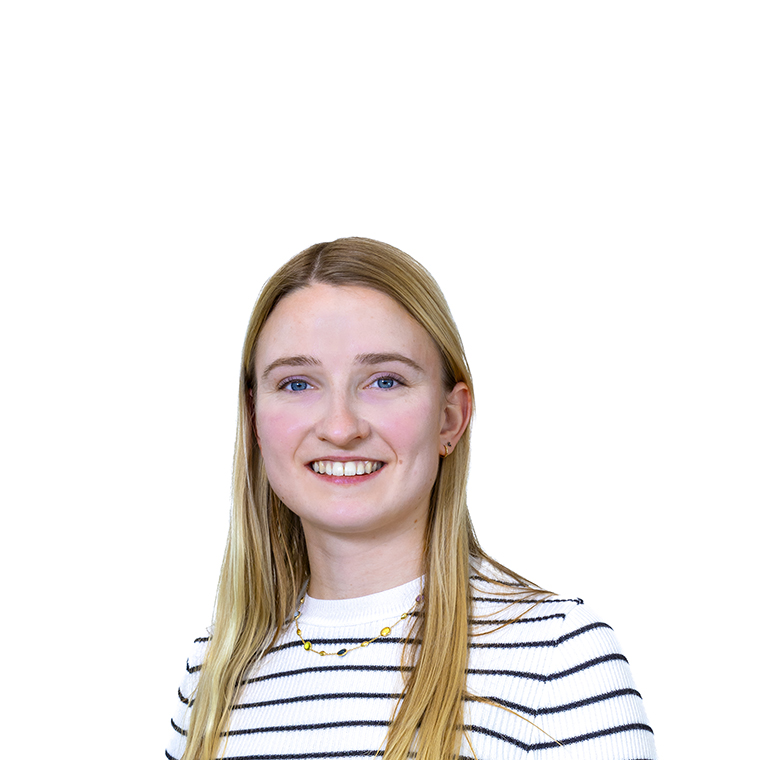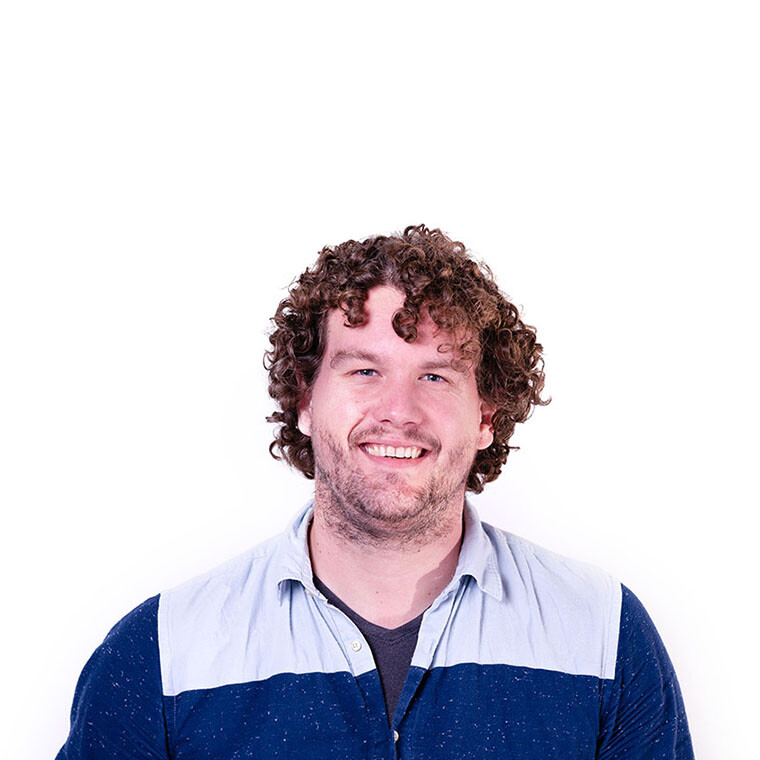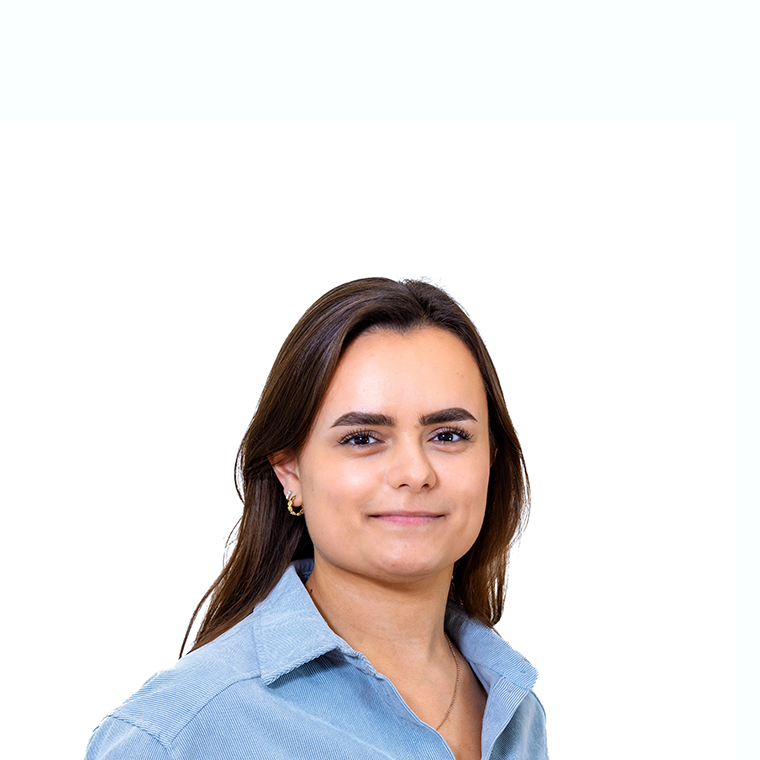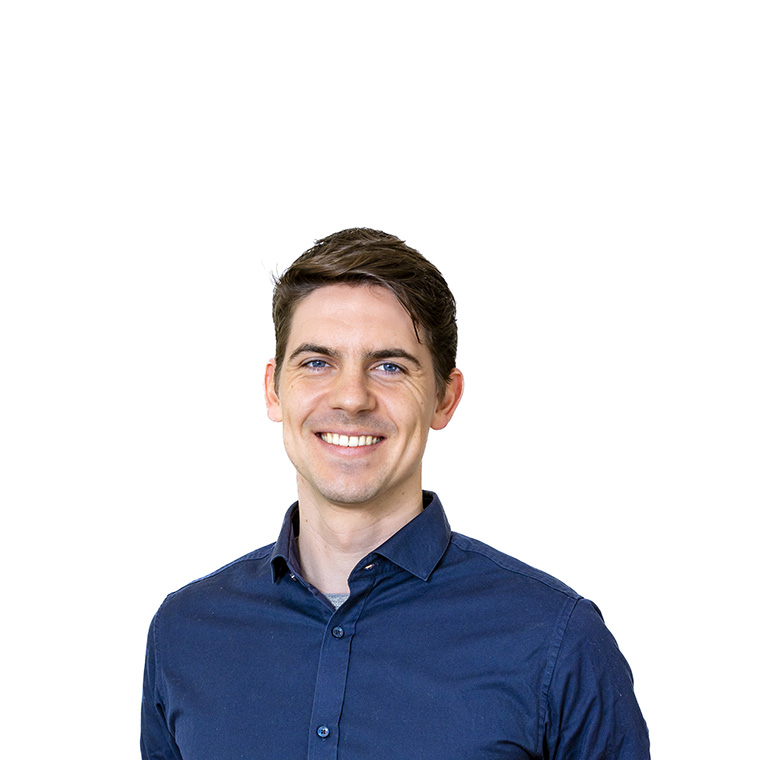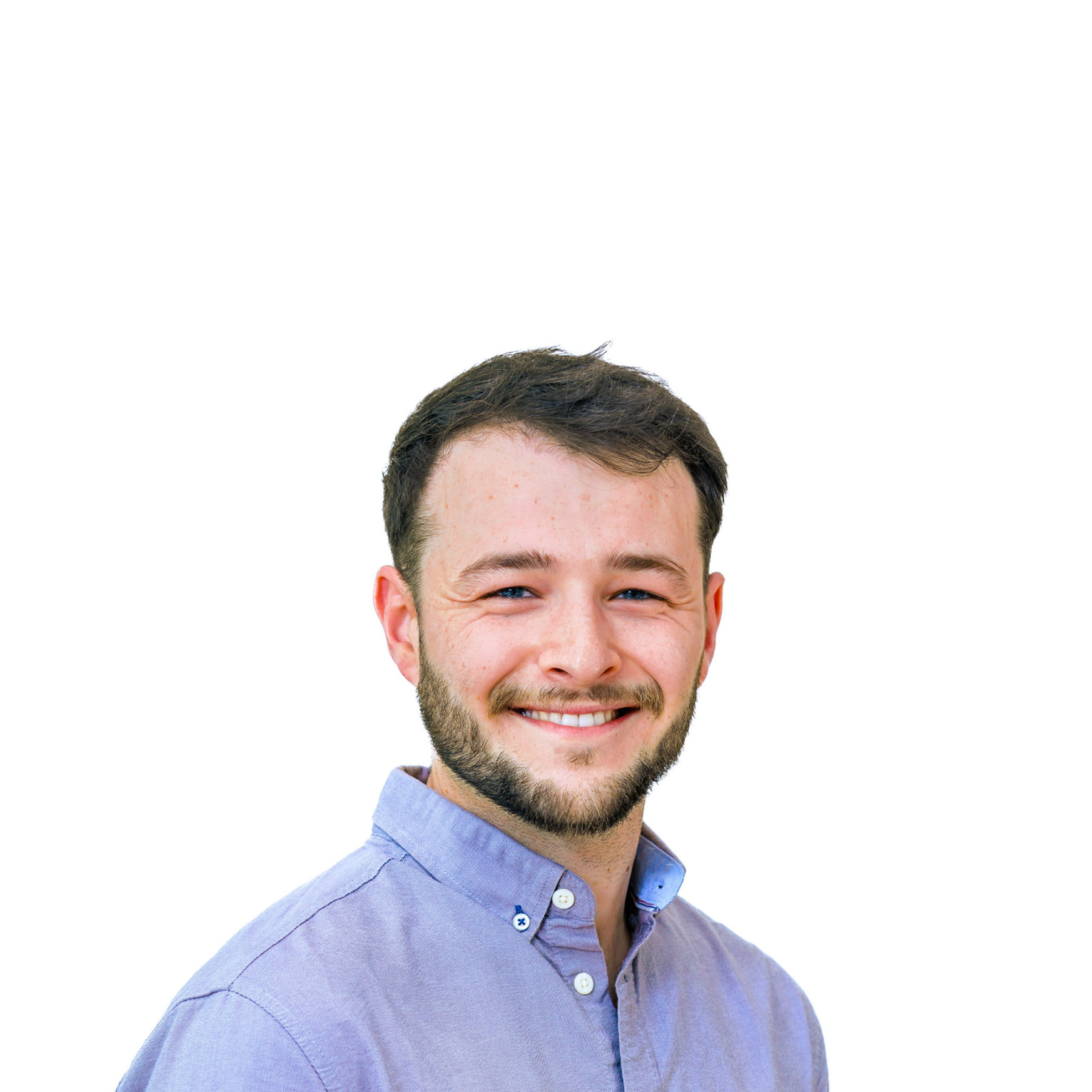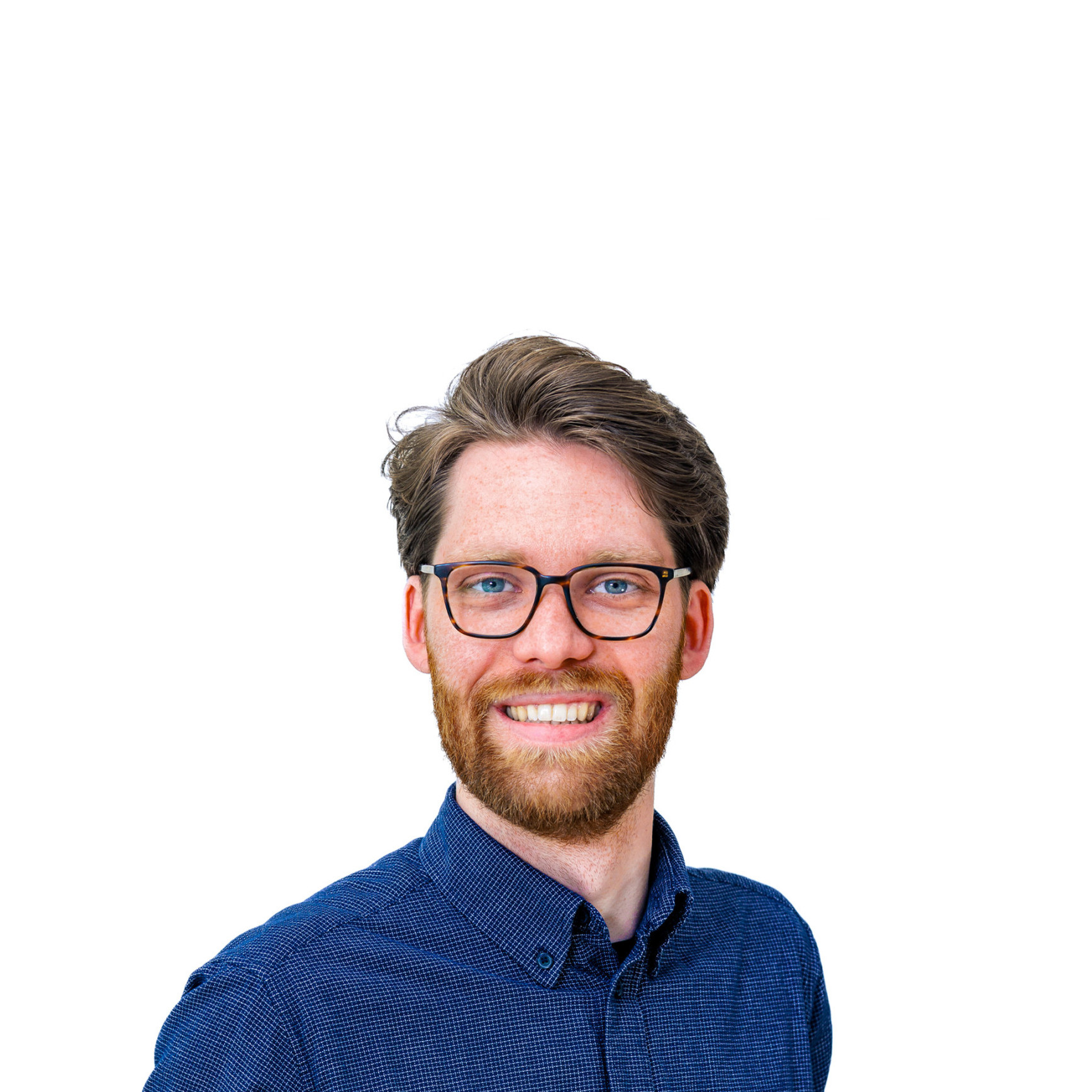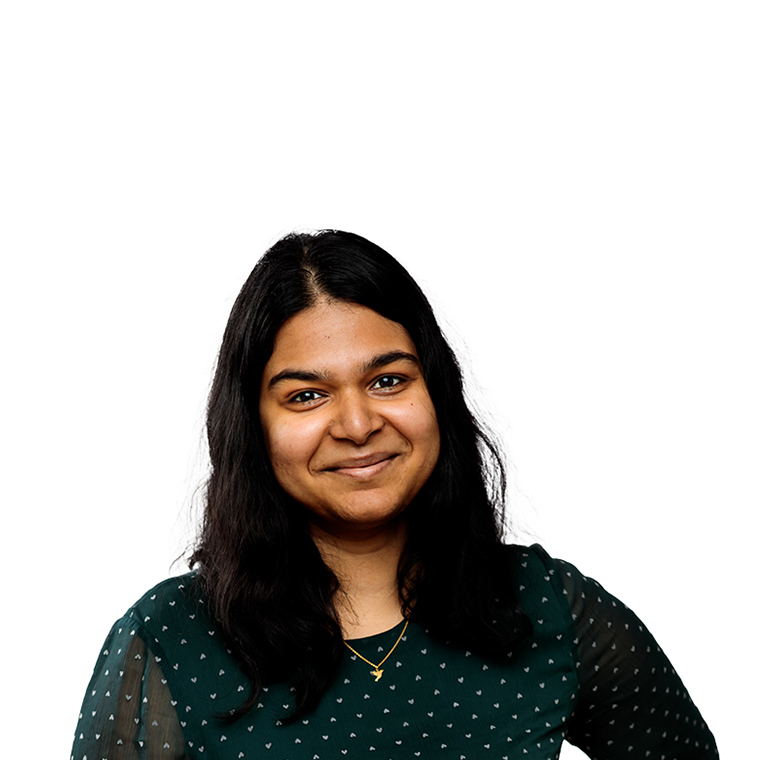Group leader: Prof. dr. Leendert Looijenga
GCTs are historically considered to be highly heterogeneous and complex, both regarding origin, histological constitution as well as clinical behavior. Investigations on normal developmental processes related to germ cell and gonadal formation and maturation combined with integrated and omics-based studies on GCTs, stimulated novel and clinically relevant insights. This resulted in a modified classification system, currently recommended by the WHO (World Health Organization), including application of diagnostic tools. Current studies will further elucidate the mechanism(s) responsible for their origin and clinical behavior, including their overall sensitivity to systematic treatment and the exceptional resistance. This will allow optimal treatment of the individual patient with minimal (long term) side effects. Moreover, the knowledge regarding the normal germ cell development will be applied in the development of pre-clinical spermatogonial stem cell propagation methods to increase the chance of successful fertility preservation in prepubertal cancer patients undergoing high risk gonadotoxic treatment. The link between GCTs and PSC is actively made, in which specific changes can be evaluated both in a malignant and physiological context.
Informative liquid biopsy biomarkers are highly instructive for the diagnosis and follow-up of patients with a malignant GCT. Currently the proteins AFP and hCG and to a lesser extend LDH are applied and found to be relevant in a clinical setting. However, they have significant limitations due to false negative and positive findings. We demonstrated that a defined (embryonic) set of small noncoding RNA (i.e., microRNAs) in combination with RASSF1AM are highly informative as serum/plasma and cerebrospinal fluid molecular biomarker for malignant GCTs. In addition, these miRNAs are informative to detect undifferentiated (and potentially malignant) elements in Induced PSC and Embryonic Stem Cell (ESC) derivatives, potentially used for regenerative medicine. Current studies are performed to clinically implement the embryonic miRNA and RASSF1AM, of potential novel others, as molecular biomarkers for the optimal diagnosis and treatment of patients with GCTs. Next to these targets, we are investigating other genetic (copy number changes) and epigenetic (methylation) liquid biopsy-based biomarkers with potential applications in GCT management including diagnosis, subtyping, staging, prognosis, and follow-up. In addition, it is investigated whether a similar approach will also be applicable for other (pediatric as well as adult) cancer types as well. Moreover, knowledge is generated to develop an in vitro method for spermatogonial stem cell propagation to allow fertility preservation in male prepubertal cancer patients undergoing high risk gonadotoxic treatment. The underlying mechanism(s) of platin-based chemotherapy is investigated using both pre-clinical laboratory model systems, as well as (publicly available and own generated) high throughput datasets of both proven treatment sensitive as well as resistance GCT samples.
Our mission: All pediatric and young adult patients with a GCT need to be diagnosed, treated and followed-up using the most informative and updated tools to generate the highest treatment efficacy with no or limited side effects to ensure long term quality of life. Prepuberal cancer patients undergoing high risk gonadotoxic treatment need to benefit for the possibilities from fertility preservation.
Our vision: Multi-modal developmental biology-based research will generate clinically relevant tools to improve lifelong care of pediatric and young adult GCT patients, and in depth possibilities to develop effective and safe regenerative medicine tools, including fertility preservation.
- De Max Bos Foundation - Development and implementation of the Utrecht Symptom Journal "Late Effects" for patients with testicular cancer or the AYA age group. Together with UMCU, Zweers D and Center of Expertise Germ Cell Tumors. (2021-2023)
- ReNEW Disease Team Project. Generation of a GMP-compliant stem cell-derived islet cell product. De Koning E, Carlotti F, Meij P, De Vries M, Heidt S, Van den Hout W, Zaldumbide A, Looijenga L. (2021-2026)
- KiKa - 2023. Copy number gain and cisplatin resistance in germ cell tumors; establishing the connection. (2023-2025)
- Butterfly 2023. Normal and aberrant germ cell development.
Eleveld TF, Ylstra B, Looijenga LHJ. Low amplitude copy number gains shape cancer through known and novel oncogenes with associated therapeutic vulnerabilities. Nucl. Acid Research 2025: 53(14): gkaf689. PubMed PMID: 40694850
Helderman NC, Yang T, Palles C, Terlouw D, Mei H, Vorderman RHP, Cats D, Gay MD, Jongmans MCJ, Ramdien A, van de Beek I, Eleveld TF, Green A, Hes FJ, van den Heuvel-Eibrink MM, Van Der Kelen A, Kliesch S, Kuiper RP, Lakeman IMM, Lashley LEELO, Looijenga LHJ, Oud MS, Steingröver J, Tenenbaum- Rakover Y, Tops CM, Tüttelmann F, de Voer RM, Westra D, Wyrwoll MJ, Golubicki M, Antelo M, Bonjoch L, Terradas M, Valle L, Alexandrov LB, Morreau H, van Wezel T, Castellví-Bel S, Goldberg Y, Nielsen M. Clinical syndromes linked to biallelic germline variants in MCM8 and MCM9. HGG Adv. 2025 Jul 18:100480. doi: 10.1016/j.xhgg.2025.100480. PubMed PMID: 40684266
Montilla-Rojo J, Hillenius S, Eleveld TF, Salvatori DCF, Looijenga LHJ. Chromosome-specific aberrations, rather than general aneuploidy, may drive mouse embryonic stem cell-derived teratoma metastasis. Stem Cell Res Ther 2025 Apr 15;16(1):181. doi: 10.1186/s13287-025-04305-6. PubMed PMID: 40234993
Van Soest M, Montilla-Rojo J, Eleveld TF, LHJ Looijenga, DCF Salvatori. Yolk Sac Elements in Tumors Derived from Pluripotent Stem Cells: Borrowing Knowledge from human Germ Cell Tumors. IJMS 2025; 26(13): 6464. PubMed PMID: 40650246
Loehr AR, Timmerman DM, Liu M, Gillis AJM, Matthews M, Bloom JC, Nicholls PK, Page D, Miller AD, Looijenga LHJ & Weiss RS. Analysis of a mouse germ cell tumor model establishes pluripotency-associated miRNAs as conserved serum biomarkers for germ cell cancer detection. Scientific Reports. 2025 Feb 6;15(1):4452. doi: 10.1038/s41598-025-88554-8. PubMed PMID: 39910147
Boogers LS, Brüggenwirth HT, Wolffenbuttel KP, Hersmus R, Bryce J, Ahmed SF, Lucas-Herald AK, Baronio F, Cools M, Ellaithi M, Globa E, Güran T, Hiort O, Holterhus P-M, MсElreavey K, Niedziela M, Stancampiano MR, Tosun BG, Van Bever Y, Oosterhuis JW, Looijenga LHJ, Hannema SE. Gonadal function and pathology in 17beta-HSD 3 and 5alpha-reductase deficiency. Eur J Endocrinol. 2025 Jan 6;192(1):34-45. doi: 10.1093/ejendo/lvae154. PubMed PMID: 39782875
Van Bever Y, Boers R, Bruggenwirth HT, Van IJcken WFJ , Magielsen FJ, De Klein A, Boers A, Looijenga LHJ, Brosens EJ, Gribnau J, Hannema SE. Genome-wide methylation analysis in patients with proximal hypospadias – a pilot study and review of the literature. Epigenetics. 2024: 2024 Dec;19(1):2392048. doi: 10.1080/15592294.2024.2392048. Epub 2024 Aug 16. PubMed PMID: 39151125
Stavish D, Price CJ, Gelezauskaite G, Alsehli H, Leonhard KA , Taapken SM , McIntire EM, Laing O, James BM, Riley JJ , Zerbib J , Baker D, Harding AL, Jestice LH, Eleveld TF9 , Gillis AJM, Hillenius S , Looijenga LHJ, Gokhale PJ, Ben-David U, Ludwig TE, Barbaric. Feeder-free culture of human pluripotent stem cells drives MDM4-mediated 2 gain of chromosome 1q. Stem Cell Reports. 2024: 19 (8): 1217-1232. PubMed PMID: 38964325
Schultewolter JH, Rissmann A, Von Schweinitz D, Frühwald M, Blattmann C, Fischer L, Lange BS, Wessalowski R, Fröhlich B, Behnisch W, Schmid I, Reinhard H, Dürken M, Hundsdörfer P, Heimbrodt M, Vokuhl C, Schönberger S, Schneider DT, Seitz G, Looijenga LHJ, Göbel U, Von Kries R, Reutter H, Calaminus G. Non-syndromic and syndromic defects in children with extracranial Germ Cell Tumors (eGCT): Data of 2,610 children registered with the German MAKEI 96/MAHO 98 registry compared to the general population. Cancers 2024: Jun 6;16(11):2157. doi: 10.3390/cancers16112157. PubMed PMID: 38893276
Touwslager RNH, Zwaan CM, Bakker B, Lentjes EGWM, Looijenga LHJ, Van Santen HM, Case Report: A 14-year-old girl with Premature Ovarian Insufficiency but with a Positive Pregnancy Test. J Ped. Endocr. & Metabol. 2024: 15;37(5):482-485. PubMed PMID: 38618883
Sriram S, Macedo T, Mavinkurve-Groothuis A, van de Wetering M, Looijenga LHJ. Non-alkylating agents-induced gonadotoxicity in pre-pubertal males: Insights on the clinical and pre-clinical front. Clin Transl Sci. 2024 Nov;17(11):e70075. doi: 10.1111/cts.70075. PubMed PMID: 39582284
Montilla-Rojo J, Eleveld TF, Van Soest M , Hillenius S, Timmerman DM, Gillis AJM, Roelen BAJ, Mummery CL, Looijenga LHJ, Salvatori DCF. Depletion of TP53 in Human Pluripotent Stem Cells Triggers Malignant-Like Behavior. Advanced Biology. First Published: 06 January 2025. https://doi.org/10.1002/adbi.202400538 PubMed PMID: 39760438
Janssen FW, Lak NSM, Janda CY, Kester LA, Meister MT, Merks JHM, van den Heuvel-Eibrink MM, van Noesel MM, Zsiros J, Tytgat GAM, Looijenga LHJ. A comprehensive overview of liquid biopsy applications in pediatric solid tumors. NPJ Precis Oncol. 2024 Aug 3;8(1):172. doi: 10.1038/s41698-024-00657-z. PubMed PMID: 39322659
Sriram S, Macedo T, Mavinkurve-Groothuis A, Van de Wetering M, Looijenga LHJ. Alkylating agents- induced gonadotoxicity in pre-pubertal males- insights on the clinical and preclinical front. Clin. Transl. Science 2024: Jul;17(7):e13866. doi: 10.1111/cts.13866. PubMed PMID: 3896509
Hannema SE, Wolffenbuttel KP, Van Bever Y, Bruggenwirth HT, Hersmus R, Oosterhuis JW, Looijenga LHJ. Gonadal tumour screening in XY gonadal dysgenesis. Clin Endocrinol (Oxf). 2024 May;100(5):466-467. doi: 10 10.1111/cen.15039. Epub 2024 Mar 12. PubMed PMID: 3978275
Eleveld T, Looijenga LHJ. Translation research on testicular germ cell tumors. Tijdschr Urol . https://doi.org/10.1007/s13629-023-00404-2.
Hannema SE, Wolffenbuttel KP, van Bever Y, Brüggenwirth HT, van den Berg SAA, Hersmus R, Oosterhuis JW, Looijenga LHJ. Undetectable anti-Mullerian hormone and inhibin B do not preclude the presence of germ cell tumours in 45,X/46,XY or 46,XY gonadal dysgenesis. Clin Endocrinol (Oxf). 2023 Jul;99(1):58-63. doi: 10.1111/cen.14909. Epub 2023 Mar 22. PubMed PMID: 36905105
Xu L, Pierce JL, Sanchez A, Chen KS, Shukla AA, Fustino NJ, Stuart SH, Bagrodia A, Xiao X, Guo L, Krailo MD, Shaikh F, Billmire DF, Pashankar F, Bestrashniy J, Oosterhuis JW, Gillis AJM, Xie Y, Teot L, Mora J, Poynter JN, Rakheja D, Looijenga LHJ, Draper BW, Frazier AL, Amatruda JF. Integrated genomic analysis reveals aberrations in WNT signaling in germ cell tumors of childhood and adolescence. Nat Commun. 2023 May 6;14(1):2636. doi: 10.1038/s41467-023-38378-9. PubMed PMID: 37149691
Wens FSPL, Hulsker CCC, Fiocco M, Zsiros J, Smetsers SE, de Krijger RR, van der Steeg AFW, Zweemer RP, Baas IO, Roes EM, Looijenga LHJ, Gerestein CG, Mavinkurve-Groothuis AMC. Small Cell Carcinoma of the Ovary, Hypercalcemic Type (SCCOHT): Patient Characteristics, Treatment, and Outcome-A Systematic Review. Cancers (Basel). 2023 Jul 26;15(15):3794. doi: 10.3390/cancers15153794. PubMed PMID: 37568608
Montilla-Rojo J, Bialecka M, Wever KE, Mummery CL, Looijenga LHJ, Roelen BAJ, Salvatori DCF. Teratoma Assay for Testing Pluripotency and Malignancy of Stem Cells: Insufficient Reporting and Uptake of Animal-Free Methods-A Systematic Review. Int J Mol Sci. 2023 Feb 15;24(4):3879. doi: 10.3390/ijms24043879. PubMed PMID: 36835305
Kooij CD, Mavinkurve-Groothuis AMC, Kremer Hovinga ICL, Looijenga LHJ, Rinne T, Giltay JC, de Kort LMO, Klijn AJ, de Krijger RR, Verrijn Stuart AA. Familial Male-limited Precocious Puberty (FMPP) and Testicular Germ Cell Tumors. J Clin Endocrinol Metab. 2022 Nov 23;107(11):3035-3044. doi: 10.1210/clinem/dgac516. PubMed PMID: 36071555
Timmerman DM, Eleveld TF, Sriram S, Dorssers LCJ, Gillis AJM, Schmidtova S, Kalavska K, van de Werken HJG, Oing C, Honecker F, Mego M, Looijenga LHJ. Chromosome 3p25.3 Gain Is Associated With Cisplatin Resistance and Is an Independent Predictor of Poor Outcome in Male Malignant Germ Cell Tumors. J Clin Oncol. 2022 Sep 10;40(26):3077-3087. doi: 10.1200/JCO.21.02809. Epub 2022 Apr 20. PubMed PMID: 35442716
Hulsker CCC, El Mansori I, Fiocco M, Zsiros J, Wijnen MHW, Looijenga LHJ, Mavinkurve-Groothuis AMC, van der Steeg AFW. Treatment and Survival of Malignant Extracranial Germ Cell Tumours in the Paediatric Population: A Systematic Review and Meta-Analysis. Cancers (Basel). 2021 Jul 16;13(14):3561. doi: 10.3390/cancers13143561. PubMed PMID: 34298776
Timmerman DM, Remmers TL, Hillenius S, Looijenga LHJ. Mechanisms of TP53 Pathway Inactivation in Embryonic and Somatic Cells-Relevance for Understanding (Germ Cell) Tumorigenesis. Int J Mol Sci. 2021 May 20;22(10):5377. doi: 10.3390/ijms22105377. PubMed PMID: 34065345
Timmerman DM, Gillis AJM, Mego M, Looijenga LHJ. Comparative Analyses of Liquid-Biopsy MicroRNA371a-3p Isolation Protocols for Serum and Plasma. Cancers (Basel). 2021 Aug 24;13(17):4260. doi: 10.3390/cancers13174260. PubMed PMID: 34503070
Hulsker CCC, Kranendonk MEG, Eleveld TF, Gillis AJM, van de Ven CP, van Eijkelenburg NKA, van der Kaaij NP, van der Steeg AFW, Looijenga LHJ. Recurrence of a Mediastinal Germ-Cell Tumor as a Somatic-Type Malignancy: A Complex Case Report. Int J Mol Sci. 2021 Aug 27;22(17):9310. doi: 10.3390/ijms22179310. PubMed PMID: 34502216
Leão R, Albersen M, Looijenga LHJ, Tandstad T, Kollmannsberger C, Murray MJ, Culine S, Coleman N, Belge G, Hamilton RJ, Dieckmann KP. Circulating MicroRNAs, the Next-Generation Serum Biomarkers in Testicular Germ Cell Tumours: A Systematic Review. Eur Urol. 2021 Oct;80(4):456-466. doi: 10.1016/j.eururo.2021.06.006. Epub 2021 Jun 24. PubMed PMID: 34175151
Mego M, Rejlekova K, Svetlovska D, Miskovska V, Gillis AJM, De Angelis V, Kalavska K, Obertova J, Palacka P, Reckova M, Sycova-Mila Z, Pindak D, Chovanec M, Looijenga LHJ, Mardiak J. Paclitaxel, Ifosfamide, and Cisplatin in Patients with Poor-prognosis Disseminated Nonseminomatous Germ Cell Tumors with Unfavorable Serum Tumor Marker Decline After First Cycle of Chemotherapy. The GCT-SK-003 Phase II Trial. Eur Urol Open Sci. 2021 Sep 22;33:19-27. doi: 10.1016/j.euros.2021.09.002. eCollection 2021 Nov. PubMed PMID: 34738090
Dorssers LCJ, Gillis AJM, Stoop H, van Marion R, Nieboer MM, van Riet J, van de Werken HJG, Oosterhuis JW, de Ridder J, Looijenga LHJ. Molecular heterogeneity and early metastatic clone selection in testicular germ cell cancer development, Br J Cancer. 2019 Feb 11. doi: 10.1038/s41416-019-0381-1 PubMed PMID: 30739914
Salvatori DCF, Dorssers LCJ, Gillis AJM, Perretta G, van Agthoven T, Gomes Fernandes M, Stoop H, Prins JB, Oosterhuis JW, Mummery C, Looijenga LHJ. The MicroRNA-371 Family as Plasma Biomarkers for Monitoring Undifferentiated and Potentially Malignant Human Pluripotent Stem Cells in Teratoma Assays, Stem Cell Reports. 2018 Dec 11;11(6):1493-1505. doi: 10.1016/j.stemcr.2018.11.002. Epub 2018 Nov 29. PubMed PMID: 30503260
Oosterhuis JW, Looijenga LHJ. Human germ cell tumors from a developmental perspective. Nat Rev Cancer 2019 PubMed PMID: 31413324
Cheng L, Albers P, Berney DM, Feldman DR, Daugaard G, Gilligan T, Looijenga LHJ. Testicular cancer. (2018) Nat Rev Dis Primers. Oct 5; 4(1): 29-53. doi: 10.1038/s41572-018-0029-0. PubMed PMID: 30291251
About our group
